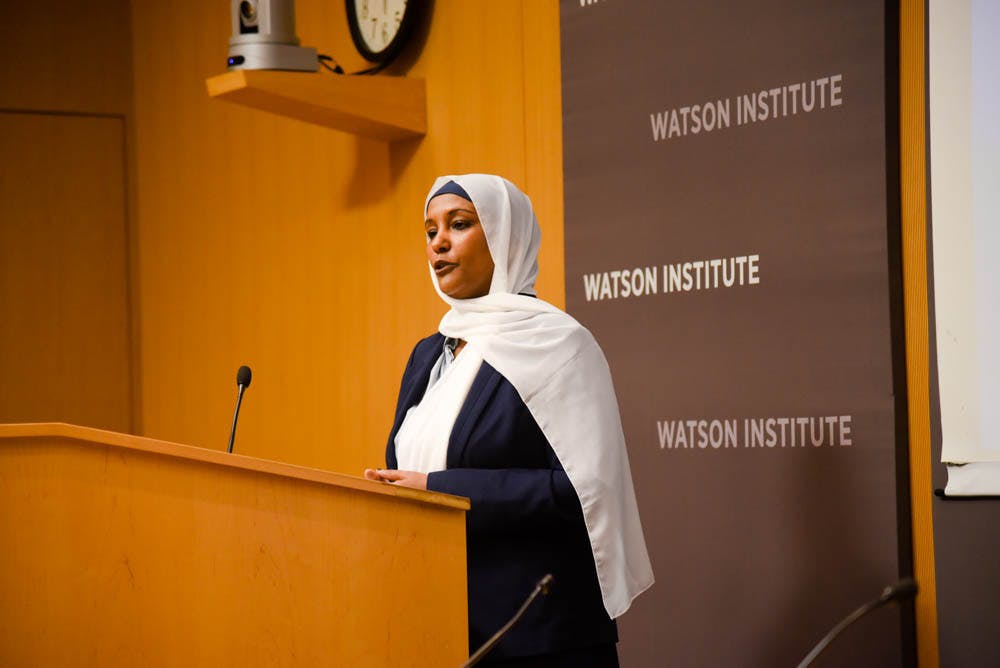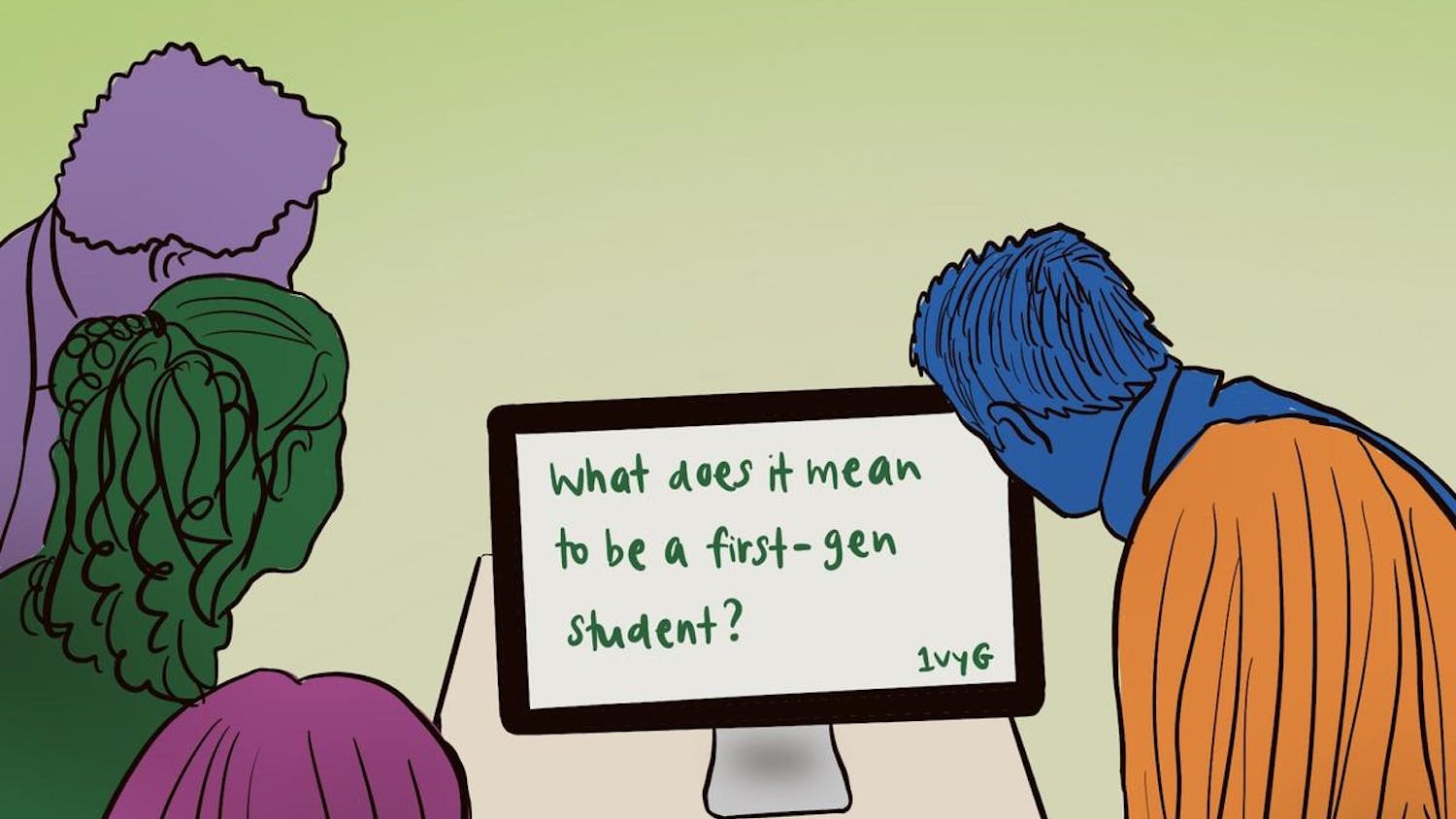Informal grassroots movements and women’s activism helped catalyze the successful uprising against now-former Sudanese President Omar al-Bashir earlier this year, said two academic scholars speaking at the Joukowsky Forum yesterday.
The event, hosted at the Watson Institute for International and Public Affairs, was titled “New Voices from Sudan” and featured presentations from Khalid Medani ’87, associate professor of political science and Islamic studies at McGill University, and Nada Mustafa Ali, lecturer of women’s, gender and sexuality studies at the University of Massachusetts Boston. The event was hosted by the Center for Middle East Studies and co-sponsored by the Africa Speaker Series.
Medani’s presentation provided a brief background to the 2018-19 Sudanese Revolution and explored possible reasons for the historical dominance of an authoritarian regime in Sudan. Medani also examined how informal networks and grassroots organizing contributed to the successful overthrow of President al-Bashir earlier this year.
In April 2019, the Sudanese army ousted al-Bashir after a series of anti-government demonstrations across the country and a sit-in protest outside the military headquarters in Khartoum. The anti-government demonstrators were protesting against 30 years of corruption, civil war, genocide and human rights abuses under al-Bashir. Following the coup, military generals announced a two-year period of military rule.
But civilian protests continued, and in May, protesters backed by the Sudanese Professionals Association engaged in demonstrations that called for the military to step aside and allow for a civilian-led transitional government. On June 3, the Sudanese government’s security forces called the Rapid Support Forces raided a sit-in protest in Khartoum, killing almost 200 civilians, Medani said. “The violence that ensued includ(ed) sexual assault, rape and throwing bodies into the Nile River,” he added.
Because of the international community’s reaction to the massacre, discussions began to transition Sudan from an authoritarian regime to a civilian government, Medani added.
The military and civilian leaders reached a power-sharing agreement after the June 3 massacre, but Medani questioned whether the agreement was an actual step toward creation of a true democracy. “The real issue at stake is: ‘Are we transitioning from an authoritarian regime to a civilian democracy, or is this just another example of a hybrid authoritarian regime?’”
Although the new government now includes a sovereign council with civilian representation, the overwhelming authority of the government remains with the military and its council. To Medani, this means that the government is a “quintessential hybrid authoritarian regime.”
“It’s really problematic to say we are on the road to full civilian democracy,” he said.
Medani also discussed other obstacles to democratic government in Sudan, including the “long history of the deep state” in the country and the general trend of “authoritarian persistence in the Arab world.” Emerging grassroots organizing networks, especially youth organizations and the Sudanese Professionals Association, were powerful enough to overcome these challenges, Medani said. In addition, the country was primed for civilian unrest following a 2011 economic collapse caused by the secession of South Sudan.
Following Medani’s presentation, Ali discussed the role of women during the Sudanese uprising and how women remain involved in activism as they fight for increased female representation in the new Sudanese government.
Ali’s presentation centered around the “dynamics of the uprising from a feminist and gender perspective,” she said. In particular, Ali discussed her research on the digital ethnography of social media, and how Sudanese Facebook pages became platforms for mobilizing young women to challenge the regime.
“Women have actively been involved in addressing the violations of the regime against women,” she added. For example, groups of women held trainings on peace-building and conflict resolution in the war-affected Nuba Mountains in 2013, Ali said.
Ali described how women’s activists groups have successfully pushed for increased female leadership in the newly-forming Sudanese government. Now, women represent two out of 11 positions in Sudan’s Supreme Court and a woman holds the role of minister of foreign affairs for the first time in the Arab world, Ali added.
Caroline Allen ’22 attended the event both because she was interested in the subject and as part of a requirement for the course HIST 1080: “Humanitarianism and Conflict in Africa.” Allen was impressed by how Medani and Ali both “had very deep backgrounds in Sudan but also international academia.”
“Hearing them break apart current events that we only know about at the surface level in a historical context was very fascinating,” she added.





